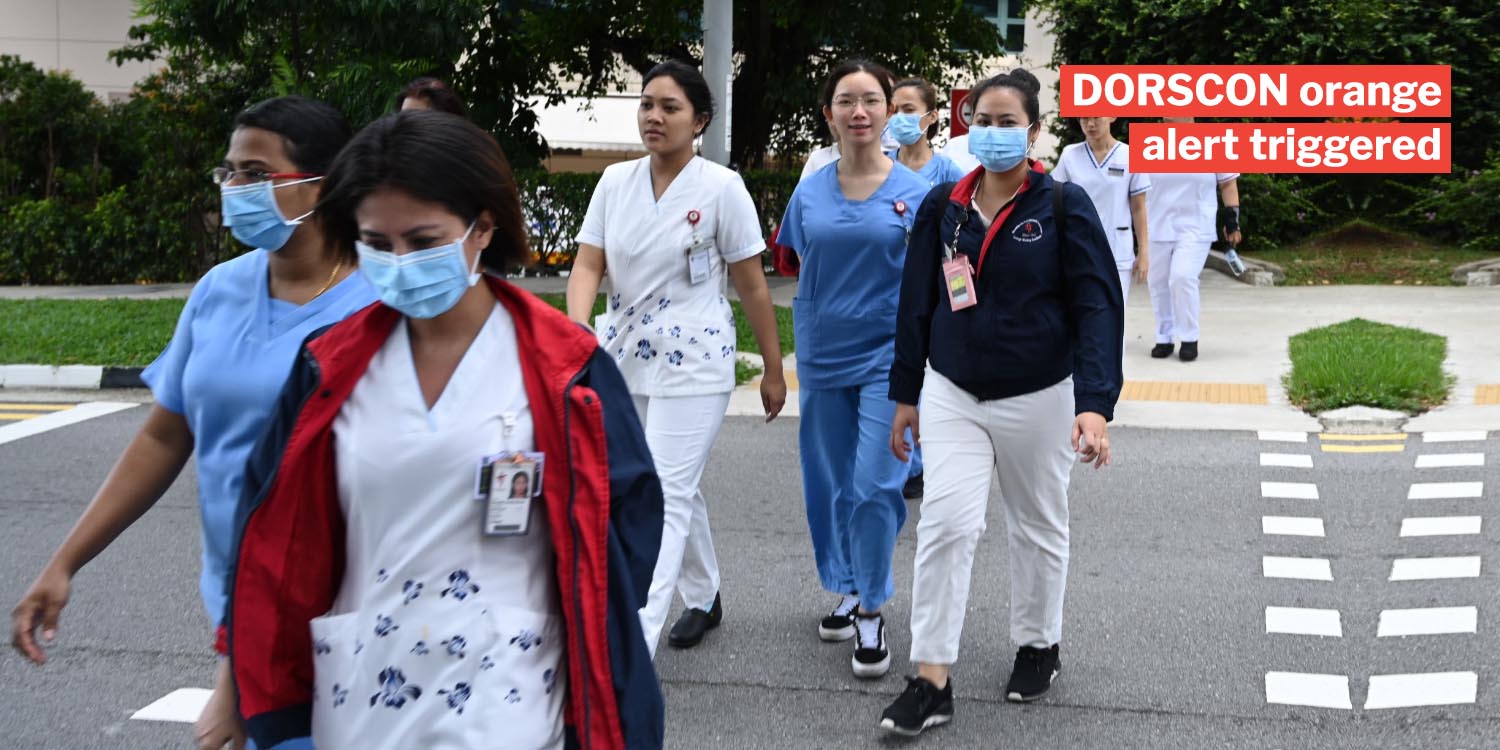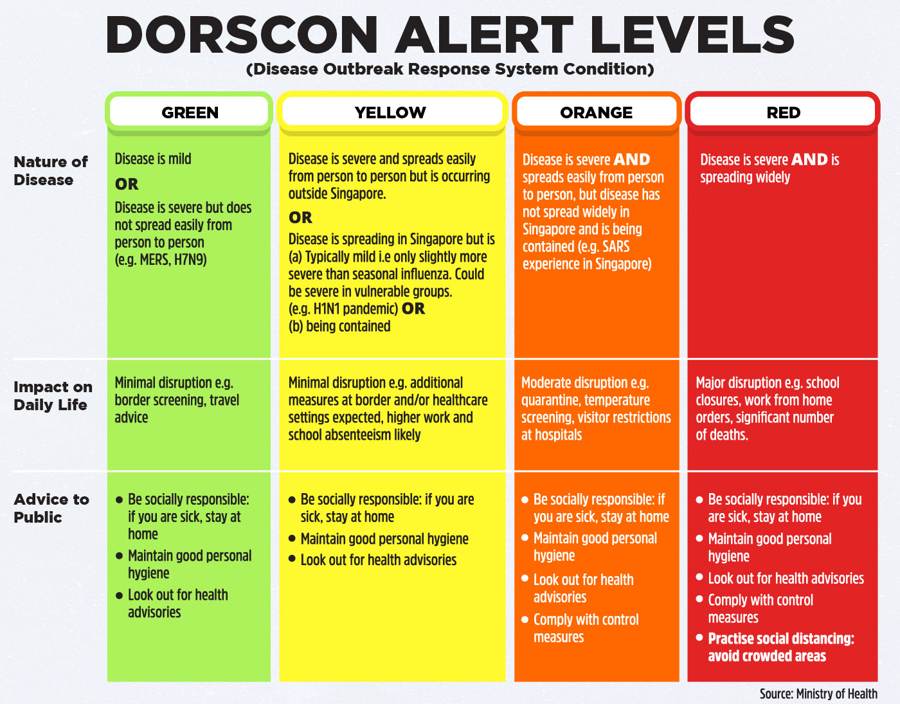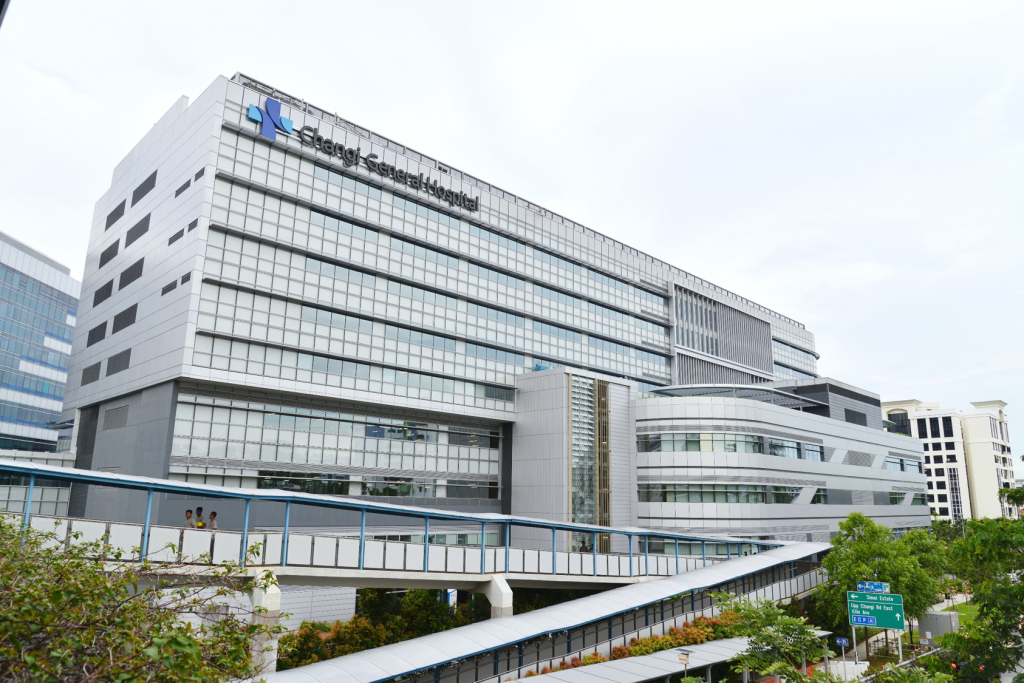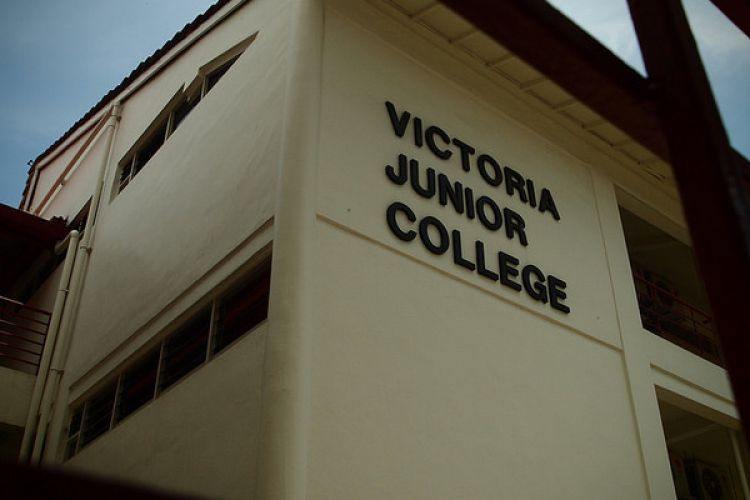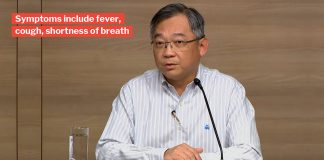MOH Announces DORSCON Level Is Now Orange, Disease Can Spread From Person To Person
In light of recent events, Ministry of Health has changed Singapore’s DORSCON levels to Orange on 7 Feb. DORSCON, which stands for Disease Outbreak Response System Condition, is a framework that assesses the severity of a pandemic.
Singapore was previously at Yellow since the virus was being contained.
This comes after MOH just announced 3 new local cases that have no apparent links to China or previous cases.
As of 7 Feb, Singapore now has 33 confirmed cases.
Singapore’s 31st case
TODAY Online reports that Singapore’s 31st case involves a 53-year-old male Singaporean, who hasn’t travelled to China recently. Though he was in Malaysia on 6, 11, and 17 Jan.
He’s currently isolated in a ward at Changi General Hospital (CGH). He started showing onset of symptoms on 23 Jan and visited a doctor.
He visited another clinic on 28 Jan and was finally admitted to CGH on 1 Feb.
The patient stays along Tampines Street 24. Some of his last visited places include The Life Church and Missions Singapore at Macpherson Road.
Singapore’s 32nd case
The 32nd case is a 42-year-old Singaporean teacher working at Victoria Junior College (VJC).
She reportedly has no recent travel history to mainland China and developed symptoms 2 Feb.
She was admitted to Parkway East Hospital on Wednesday (5 Feb) and tested positive for the virus the next day.
She continues to be insolated at the same hospital, at the time of writing.
The 42-year-old last visited VJC on 21 Jan but did not have interactions with any colleagues and students since the onset of her symptoms.
Those who had close contact with her have been told to observe a 14-day leave of absence.
Singapore’s 33rd case
The last case announced on Friday (7 Feb) is a 39-year-old Singaporean who similarly had no recent travel history to mainland China.
She reportedly developed symptoms on 30 Jan and visited Sengkang General Hospital on 2 Feb.
She tested positive for the coronavirus on 6 Feb and is currently warded in an isolation room there.
The 39-year-old also visited Malaysia from 22-29 Jan.
Singapore’s 30th case had visited Far East Square & Junction 8
Separately, MOH also gave a brief update on the 30th case — a 27-year-old Singaporean man who was at the Grand Hyatt Singapore from 20-22 Jan for a conference.
S’pore Confirms 2 New Local Coronavirus Cases, 1 Has No China Travel History
The Shunfu Road resident had visited Far East Square and Junction 8 before he was admitted.
Orange DORSCON indicates severity
DORSCON measures are meant to “prevent and reduce the impact of infections”, according to MOH.
The Orange level indicates that the disease is severe and can spread easily from person to person. However, the disease is also not spreading widely in Singapore and is still being contained.
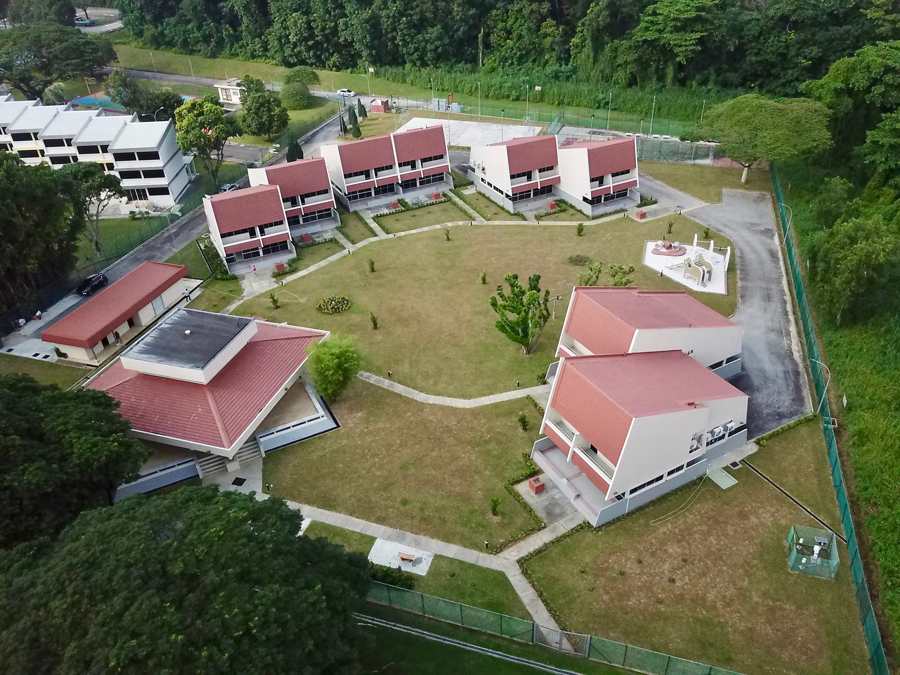 One of the chalets used for quarantine
One of the chalets used for quarantine
Source
Currently, the impact on daily life is limited to a “moderate disruption” — quarantine, temperature screening, visitors restrictions at hospitals.
One example of an Orange DORSCON pandemic would be the SARS outbreak in 2003.
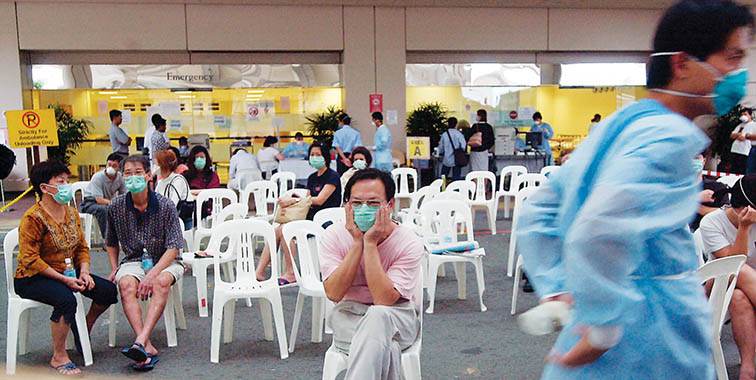 Singaporeans waiting to be screened for SARS in 2003
Singaporeans waiting to be screened for SARS in 2003
Source
These measures are used as general guidelines, thus Singapore employed Orange measures even though were at Yellow, reported The Straits Times.
What happens next?
According to TODAY Online, hospitals and schools are required to beef up measures to cut down risks of transmission.
This means that schools will be putting on hold all inter-school and external activities until the March school holidays are over — with immediate effect.
Meanwhile, hospitals are to care for pneumonia patients separately.
What we can do now
Now that the DORSON level is officially Orange, we should strictly adhere to MOH’s advice on how to stay safe from the coronavirus spread.
Apart from maintaining good personal hygiene, do comply with control measures.
Let’s all stay safe.
Featured image courtesy of AFP.
